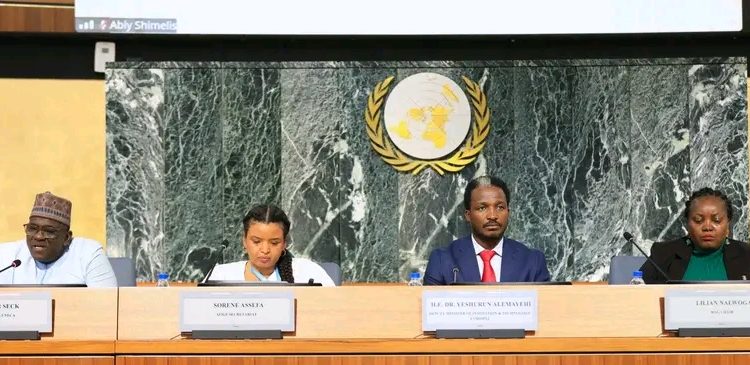African Gov’ts Urged to Harmonize Policies Encouraging Innovation, Promote Competition
Addis Ababa, November 22, 2024 (FBC) — Governments across Africa must harmonize policies encouraging innovation, promoting competition, and protecting users’ rights, Ethiopia’s Innovation and Technology State Minister Yeshurun Alemayehu said.
The 13th Africa Internet Governance Forum (IGF) held for the last five days in Addis Ababa concluded today by addressing internet divides, inclusivity and regional collaboration to drive Africa’s digital transformation.
In his closing remark, Yeshurun said Africa’s digital journey is one of immense potential, resilience, and opportunity. This forum has underscored a vital truth: the digital future we seek must be inclusive, collaborative, and transformative.
The state minister said that Africans must commit to creating regulatory frameworks that attract investment while safeguarding freedoms such as privacy and access to information.
He added that Africa cannot afford to leave anyone behind and the policies and strategies should fully represent all the diversity in order to drive Africa’s digital transformation.
“One of the most urgent priorities discussed is connectivity. While significant strides have been made, millions of Africans remain offline, excluded from the benefits of the digital age,” he said urging all stakeholders—governments, private sector actors, and international partners—to intensify investments in affordable and sustainable broadband infrastructure.
“We must explore innovative models like public-private partnerships and community networks to ensure last-mile connectivity,” the State Minister elaborated.
According to him, strengthening digital policies, empowering youth and women, and addressing the Digital Divide as well as building local capacity are among the focus areas that Africa should deal with.
Africa’s greatest resource is its people, particularly its vibrant youth and women, Yeshurun said, and emphasized “we must develop programs to foster digital literacy, encourage entrepreneurship, and provide funding mechanisms for startups and SMEs. This includes initiatives to increase participation in STEM fields and leadership roles in technology.”
Ensuring digital inclusivity through affordable devices, data plans, and localized content is crucial, he stated, and pointed out that special attention should be given to rural areas and marginalized groups, ensuring no community is left behind in the digital journey.
Yeshurun mentioned about the importance of strengthening cyber security. “A secure digital future requires robust cyber security measures. Governments must work with the private sector and academia to establish frameworks that protect users from cyber threats and build trust in digital platforms.”
Africa’s digital future depends on its ability to create homegrown solutions, he said, and urge Africans to invest in research and innovation hubs, encourage regional collaboration, and leverage the talented developers, engineers, and creative to build platforms tailored to Africa’s unique challenges and opportunities.
Africa must continue to assert its voice in global Internet governance dialogues whereby the priorities, equity, inclusivity, and sustainability, must shape the global digital agenda, he said, and stressed “let us strengthen regional cooperation to present a unified stance on issues like data sovereignty and cross-border digital trade.”
This year’s IGF was organized by the Economic Commission for Africa (ECA), in collaboration with the Ministry of Innovation and Technology of Ethiopia, under the theme “Building Our Multi Stakeholder Digital Future for Africa.”
The forum has decided that Tanzania will host the 14th IGF next year, as reported by ENA.



